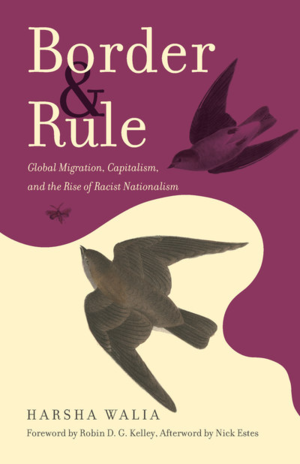An urgent, global account of the migration crisis and the function
of borders across political, social, cultural, and economic systems.
In Border and
Rule, one of North America’s foremost thinkers and immigrant
rights organizers delivers an unflinching examination of migration as
a pillar of global governance and gendered racial class formation.
Harsha Walia
disrupts easy explanations for the migrant and refugee crises,
instead showing them to be the inevitable outcomes of conquest,
capitalist globalization, and climate change generating mass
dispossession worldwide. Border and Rule explores a number of
seemingly disparate global geographies with shared logics of border
rule that displace, immobilize, criminalize, exploit, and expel
migrants and refugees. With her keen ability to connect the dots,
Walia demonstrates how borders divide the international working class
and consolidate imperial, capitalist, ruling class, and racist
nationalist rule. Ambitious in scope and internationalist in
orientation, Border and Rule breaks through American
exceptionalist and liberal responses to the migration crisis and
cogently maps the lucrative connections between state violence,
capitalism, and right-wing nationalism around the world.
Illuminating the
brutal mechanics of state formation, Walia exposes US border policy
as a product of violent territorial expansion, settler-colonialism,
enslavement, and gendered racial exclusion. Further, she compellingly
details how Fortress Europe and White Australia are using immigration
diplomacy and externalized borders to maintain a colonial present,
how temporary labor migration in the Arab Gulf states and Canada is
central to citizenship regulation and labor control, and how
far-right nationalism is escalating deadly violence in the US,
Israel, India, the Philippines, Brazil, and across Europe, while
producing a disaster of statelessness for millions elsewhere.
A must-read in these
difficult times of war, inequality, climate change, and global health
crisis, Border and Rule is a clarion call for revolution. The
book includes a foreword from renowned scholar Robin D. G. Kelley and
an afterword from acclaimed activist-academic Nick Estes.

